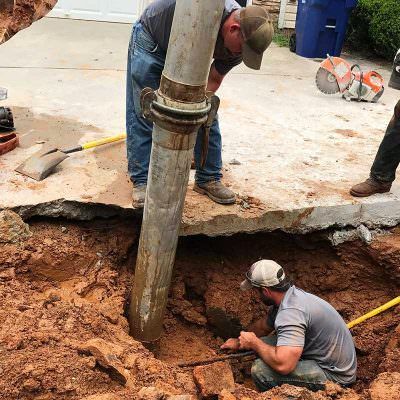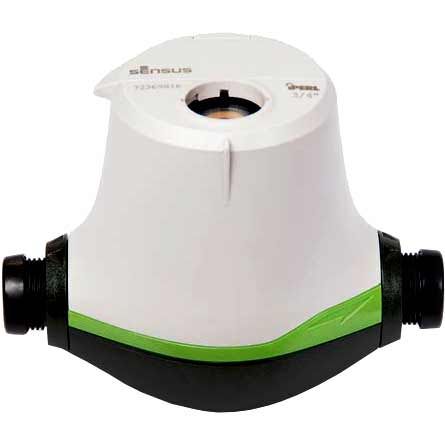Georgia Utility Addresses Non-Revenue Water with Sensus iPERL Meters - Case Study
Published on by Water Network Research, Official research team of The Water Network in Case Studies
City of Dallas captures an additional 600,000 gallons of billable water in four months

Sensus iPERL meters help support the need for a robust water
loss and control program for the City of Dallas, GA
Source: Sensus
Just 30 miles northwest of Atlanta, the City of Dallas, Georgia, offers a reprieve from the busyness of the big city with the retained charm of simpler times and a friendly community. Whether visitors and residents want to take in the city’s quaint, historic downtown or have a chat at the local bakery, there’s plenty of southern hospitality to go around.
While the city might have an easygoing appeal, running the local water utility is anything but a breeze. Made up of 12 District Metered Areas (DMAs), the City of Dallas water infrastructure includes 3,700 water connections across 38 miles of water line. The utility team’s constant goal is superior service for the city’s 14,000 residents.
“We’ve built high standards for our services based on the city’s tradition of community and growth,” said City of Dallas Billing Clerk Amber Whisner.
Assessing water loss
After analyzing annual water loss audits for the city, Whisner and her team discovered significant issues around non-revenue water. In 2014, real and apparent water loss accounted for 31.3 million gallons—nearly 20 percent of the city’s total water supplied for the year—which meant lost revenue for the city.
“We discovered that a large percentage of our water was simply being lost, so it was a problem we couldn’t ignore,” said Whisner. “When you’re a paid utility that purchases its water from the county, every drop counts.”
The audit results spurred Whisner and her team to create a robust water loss and control program. As part of the program, the city decided to replace its existing water meters with a system that could more efficiently identify issues to help minimize non-revenue water.
Upgrading the infrastructure
They replaced approximately 320 meters in one subdivision—and chose Sensus iPERL® residential water meters for the project. Offering low-flow accuracy and high-flow durability, the iPERL uses innovative magnetic technology to capture previously unmeasured low flow. City of Dallas employees believed that the meters would provide consumption data far beyond what they were currently experiencing, and that instinct was correct.
“The iPERL water meter picked up flow data we never had before,” said Whisner. “The meters could register the smallest bit of water usage for activities like the flushing of toilets or the washing of hands.”

Source: Sensus
Proof in the numbers
The results of the city’s initial iPERL deployment were immediate and quickly translated into real savings. In just four months, the city billed for an additional 600,000 gallons of water in the subdivision thanks to the Sensus meters.
“Within four months, we had gained back more than $12,000 from our initial investment in the Sensus solution thanks to the revenue it helped generate,” said Whisner.
The benefits go well beyond water conservation for the city. The new meters also proactively improved customer interactions.
“We can now call the customer and tell them they have a leak before the bill is ever mailed to their house,” said Whisner.
All-out expansion
Based on the success of the Sensus rollout in just one subdivision, the utility is now deploying a full Sensus advanced metering infrastructure (AMI) solution across its entire service area.
So far, the city has upgraded about half its existing meters with iPERL meters. The city is also implementing the FlexNet® communication network, a two-way system that will allow city staff to remotely monitor water usage and increase billing accuracy.
“We’re at a point now where the Sensus solution has already paid for itself,” said Whisner. “When we add AMI, we’ll be able to further increase efficiency and proactively serve our customer with insights from real-time data.”
Source: Sensus
Media
Taxonomy
- Technology
- Water Supply
- Leakage Detection
- Water Supply
- Water Utility
- Leakage
- Infrastructure
- Leakage Reduction
- Integrated Infrastructure
- Utility Management
- Infrastructure Management
- green infrastructure